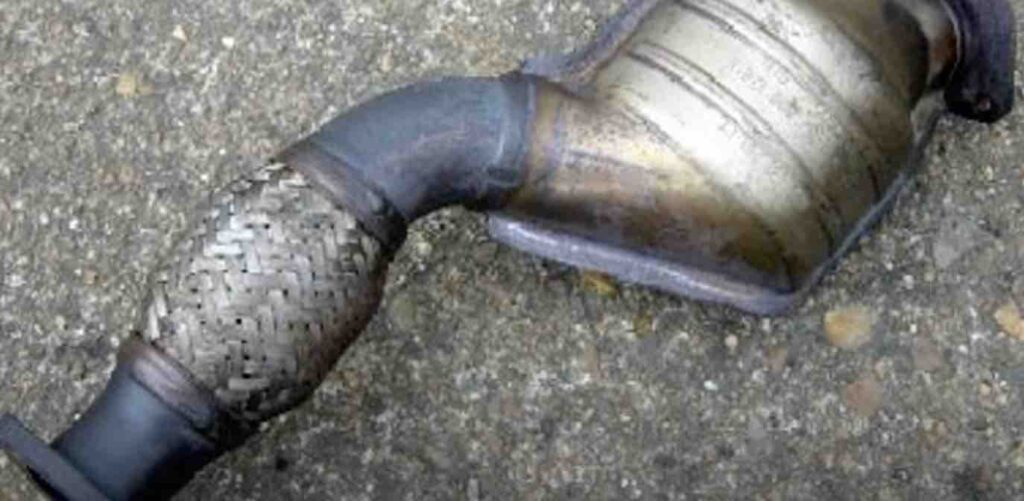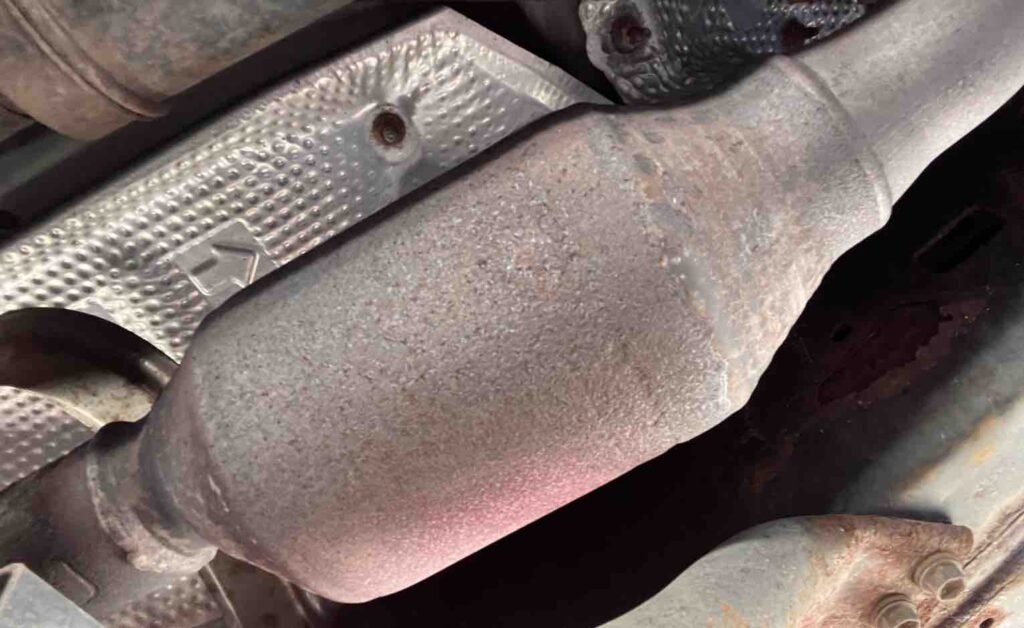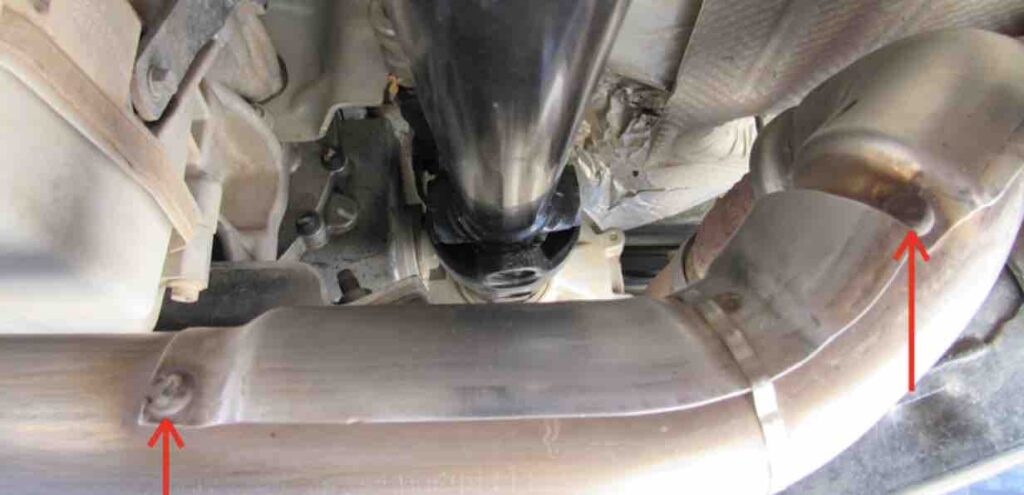Last updated on July 12th, 2023 at 09:39 am
Hey, guys. Welcome to this article on how Much Is It To Replace A Catalytic Converter, how often to replace a catalytic converter, and if it is worth replacing a catalytic converter.
So you are tired of your car smelling like rotten eggs and feeling like it’s running on fumes?
Well, I have got you in this post showing you the estimate you are most likely to pay when replacing your cat and even showing you how worth it is to replace a catalytic converter.
So if you are ready, let’s get right to it.

How Much Is It To Replace A Catalytic Converter?
The Catalytic Converter is a core part of any vehicle. The cost of a replacement catalytic converter for most modern cars can range from $50 to $4,500, labor not included. These costs, however, are typically influenced by the cost of the parts, the car model, labor costs, and the car brand. So let’s say you own a Toyota, you are more likely going to spend around $50 to $150 boxes for just the parts based on where you buy your parts and for labor. See this: Are Catalytic Converters Worth More As Scrap Or When Functional In A Vehicle? and this other article showing the Free Catalytic Converter Price Guide
Estimated cost for replacing catalytic converter by brand and labor cost.
| N/S | Car Brand | Estimated Cost of Replacing Catalytic Converter | Labor |
| 1 | Low-End Brands | $500 – $800 | $80 to 300 |
| Examples: | Ford, Chevrolet, Honda, Kia, Hyundai, Toyota | ||
| 2 | Mid-Range Brands | $800 – $1,200 | 350 to 800 |
| Examples: | Volkswagen, BMW, Mercedes-Benz, Audi, Lexus, Acura | ||
| 3 | High-End Brands | $1,200 – $4,500 | 350 t to 1500 |
| Examples: | Porsche, Ferrari, Lamborghini, Rolls Royce, Bugatti, Aston Martin |
In addition to their purpose, catalytic converters are also pricey because of the valuable metals they contain. These metals function as catalysts for chemical processes that lessen harmful emissions. Never dispose of your catalytic converter, even if it is broken. You can get paid well to recycle your used catalytic converter at a wreck or scrap yard.
Continue reading to find out more about your catalytic converter and how often it should be replaced.
Related Posts:
- The Cheapest Way to Fix Catalytic Converter, Cost & How to Fix
- What Happens If You Keep Driving With A Bad Catalytic Converter?
- How Can I Get the Best Price for My Catalytic Converter Scrap?
- Effects of Driving with a Bad Catalytic Converter
- Catalytic Converter Heat Shield Rattle fix
- Overheated Cat Symptoms & Signs Of A Bad Catalytic Converter
How Often Does A Catalytic Converter Need To Be Replaced?
So how often replace catalytic converter? The right answer to this question depends on your usage and whether a mechanic has tempered with your cat converter. Or if you had an impactful accident or frequently drive on bad road conditions that quickly damage your cat.
So under normal conditions, You should replace the catalytic converter after about 10 years because that is how long it typically lasts. However, the catalytic converter can also get clogged, physically harmed, or contaminated by the engine oil during this period of intensive use. In these situations, you may need to replace the converter immediately.
Due to its function, the catalytic converter is bound to go through wear and tear after some time. Reduced engine performance, sulfurous exhaust odor, and overheating are major indications of a faulty converter.
Note that some of these symptoms can also be caused by other emissions system parts that aren’t working properly. Therefore, before changing the catalytic converter, a mechanic will need to diagnose the exhaust system.
How Many Miles Before Replacing Catalytic Converter?
The typical lifespan of a catalytic converter is between 70,000 and 100,000 miles. However, this depends on your overall maintenance and driving habits. You might not need to worry about making repairs throughout the catalytic converters’ lifespan if it is well maintained.
Catalytic converters are designed to function for a considerably long period. Despite this, accidents occasionally happen, and catalytic converters can suffer premature damage. This is because the efficiency of the converter can be affected by variables like time and many environmental factors.
Causes Of Catalytic Converter Wear Out
In this section, we will list some reasons why your Catalytic Converter will experience wear and tear.
1. Too many Short Trips
If you only drive for a few minutes at a time, your Catalytic Converter will eventually develop a clog. This is because it requires a good amount of time for it to reach sufficient temperature to operate properly. Try to drive long distances more frequently to guarantee that the converter’s carbon contents are burned.
2. Faulty spark plugs
Spark plug-related issues are annoying to deal with if they are not monitored properly. The unburned fuel in your car engine will most likely ignite inside the converter if your spark plugs aren’t firing properly. With this, the ceramic casting will malfunction and melt, thereby resulting in accumulated long-term wear and tear.
3. Damaged Oxygen Sensor
When your oxygen sensor isn’t working properly, it can be giving your car’s computer false readings. This will hinder the essential function of safely converting dangerous fumes to safe ones. If this issue is not resolved right away, it will only cause more problems for your engine.
4. Coolant Malfunction
When soot obstructs the airways over a long period, irreparable harm will eventually result. If coolant or antifreeze spills into the combustion chamber, you could be dealing with a serious issue. The converter will become clogged as a result of the leak, producing heavy soot.
How Much Is It To Replace A Catalytic Converter?
Depending on the car model, replacing your catalytic converters can cost anywhere from $300 to $2,500 for the part alone. Additionally, keep in mind that installing the converter could cost between $70 and $130 per hour of work.
The required time to replace your catalytic converters is mainly dependent on your vehicle model. Making the change yourself will save money on labor costs. However, you will require a sufficient level of knowledge in this field.
Note: Even while the task can be time-consuming, it’s frequently manageable. This is dependent on having the right tools and knowledge.
Is It Worth Replacing the Catalytic Converter?
So is the catalytic converter worth replacing? I will say yes, it is very much worth it to replace a catalytic converter when it needs replacement. And this is because the overall performance of your vehicle is highly dependent on the condition of core parts like the catalytic converter. You do want to be going around with the smell of a rotten egg or stalling in the engine and so many other signs you will have when your catalytic converter is bad or damaged. So, yes, it is worth replacing your catalytic converter.
While a repair might seem to be more cost-effective than a complete replacement, it will most likely not be the best approach. Having a skilled mechanic diagnose your vehicle should be more than enough confirmation that replacement is the proper route to take.
How To Prevent Your Catalytic Converter From Begin Stolen
The catalytic converter is a valuable and important part of any vehicle. Naturally, thieves will only try to covet it if you are careful. The following measures will help you protect your catalytic converter from being stolen:
- Only park your car in a safe/secure area.
- Use an anti-theft gadget to make it difficult for thieves to steal it.
- Mark, your catalytic converter to make it simpler to recognize if it gets stolen.
It is a typical practice for thieves to steal and sell catalytic converters for scrap. To secure your catalytic converter, you can also get car insurance, including converter theft.
Is it Possible to Prevent Catalytic Converter Clogging?
Clogging can be avoided by routinely using an exhaust system cleaner such as Liqui Moly or Cataclean catalytic converter cleaner. Also, simply avoid driving your car for short distances because the hydrocarbons won’t burn out. This is a result of the catalytic converter needing more time and distance to work correctly.
To this end, we recommend driving your car for at least 20 minutes on the highway; this will further lower your risk of having a clogged catalytic converter. For your catalytic converter to operate as efficiently as possible, it needs to generate the heat required to burn off its carbon deposits effectively.
Conclusion
Taking measures that ensure your catalytic converter’s safety and optimum performance is very important. With the tips we have highlighted in this article, we hope you will be able to take better care of your catalytic converter. Due to its value, it will be in your best interest to have vehicle insurance that covers catalytic converters. This will help you prepare for the worst-case scenario. Read this also:
Reference:
- https://www.repairsmith.com/blog/catalytic-converter-cost/
- https://www.fixdapp.com/blog/how-much-does-replacing
- https://cartreatments.com/catalytic-converter-symptoms-
- https://performancemuffler.net/when-to-replace-a-catalytic-
- https://bookmygarage.com/blog/catalytic-converters-long-
- https://carbrain.com/blog/catalytic-converter-replacement-
- https://www.autozone.com/diy/exhaust/how-much-does-a-

Uchenna is a Radiographer and Auto parts mechanic who recently got his automotive diploma as an auto repair technician, and since then, has worked on fixing various car problems.
Working as just a radiographer, Uchenna didn’t just get all the fulfillment he desired, because he truly loved doing things tilted toward cars. As a kid, he would take apart his toy cars to see how they worked and would spend hours tinkering with his bike.
So, in 2017 he made the tough decision to become an auto mechanic. He threw himself into his studies and now loves every aspect of what he does.
He gets to work with his hands, solving problems and bringing cars back to life, and sharing his knowledge and easy quick-fix guide online are all part of what makes him feel fulfilled.


